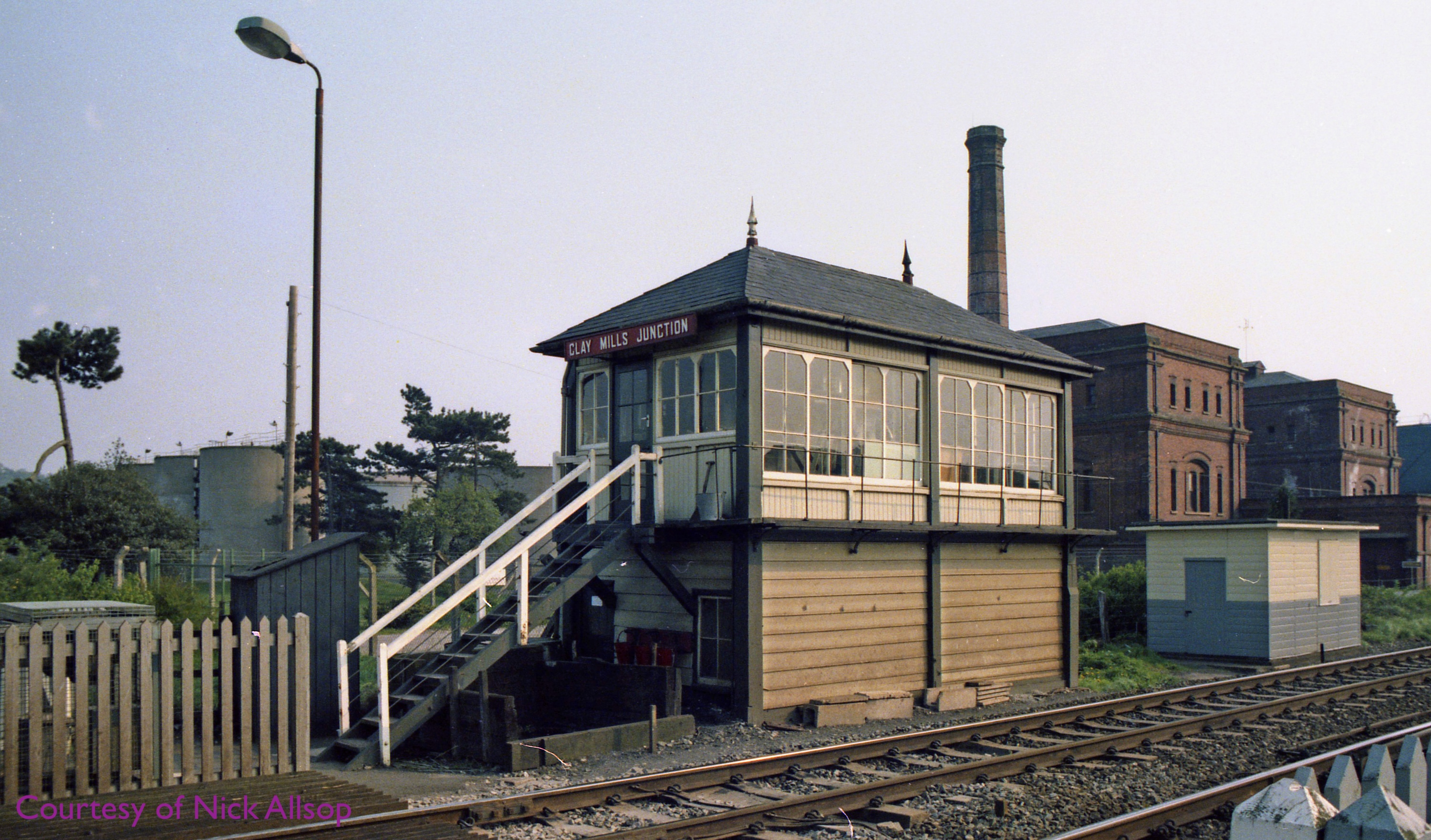
The Derby Signalling Web Site
THE HISTORY OF MECHANICAL RAILWAY SIGNALLING IN THE DERBY AREA
The 'derby-signalling.org.uk' email address is currently broken and the cause is under investigation by the web hosts. Meanwhile, if you would like to get hold of me, please use derby-signalling AT crepello DOT net (noting the obvious 'spam trap'!). Thanks. Dave

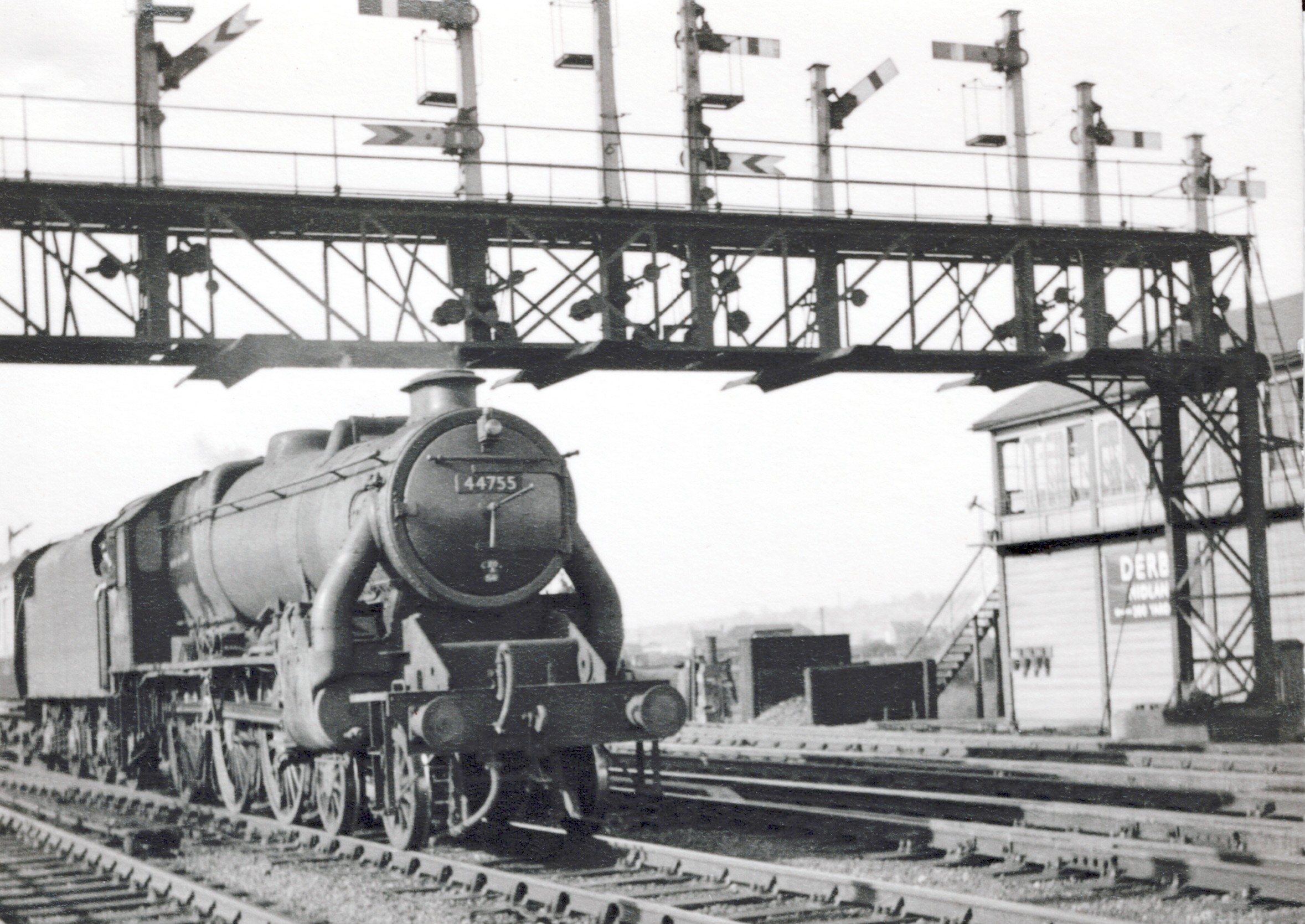
Research into the mechanical signalling which once existed on the railways centred on Derby, encompassing Ambergate, Burton–on–Trent and Uttoxeter
Welcome to the Derby Signalling web site. This is a place for me to share the results of several years of research into the history of mechanical signalling, centred on the railways which came under the control of Derby Power Signal Box. I hope you find some useful and interesting material here. Even if railways in general, or signalling in particular, are not your "thing", there is plenty of local interest relating to the Derby area.
If this is your first visit, or you want a brief introduction to the history of railway signalling around Derby, then this essay is for you.
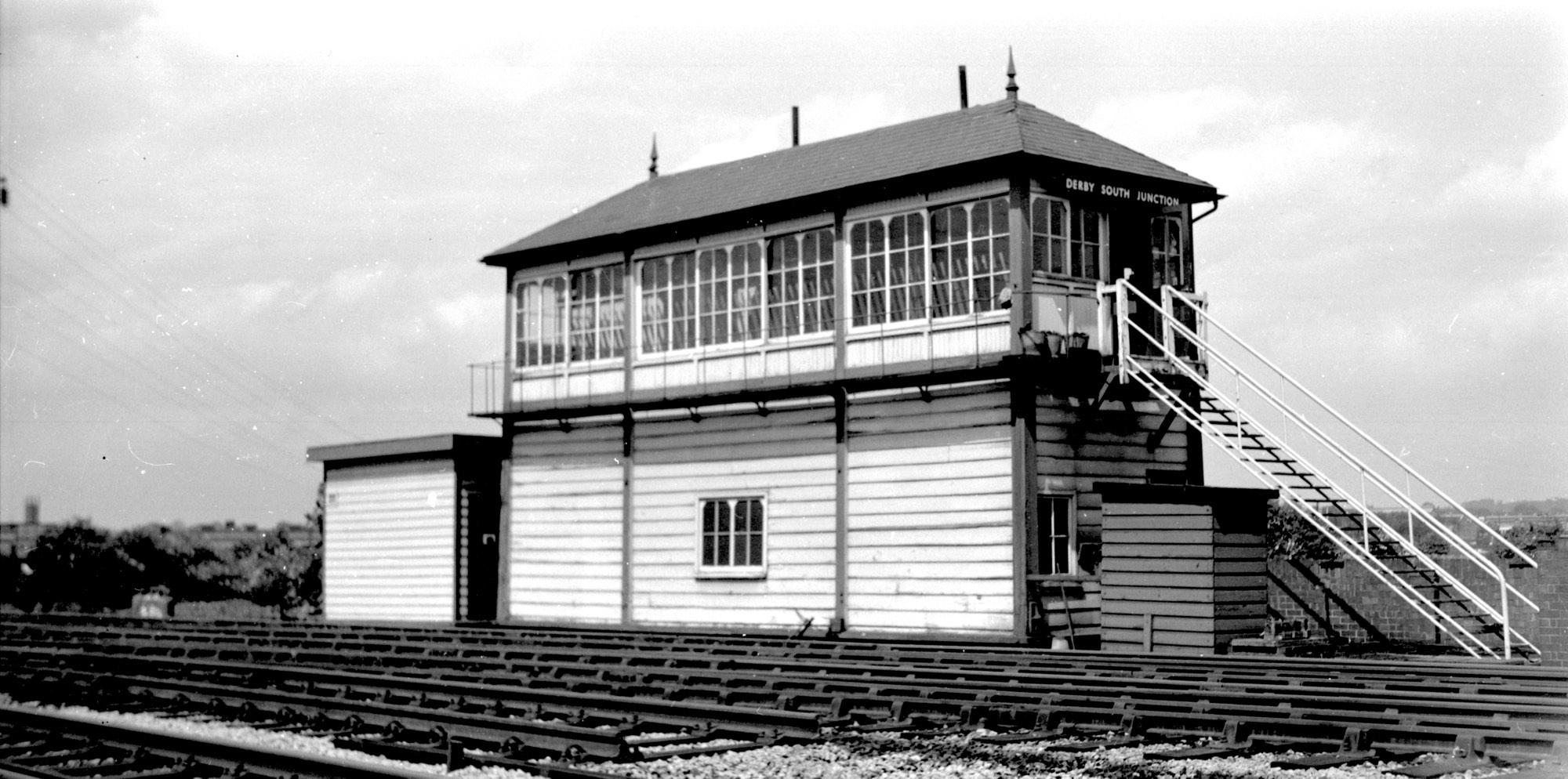
Contents of the Derby Signalling web site
Details of the Derby Area Signalling Project and research resources
Some articles of general interest about signalling in the Derby area
Focus on...
A series of studies of the signalling at specific locations within the Derby area. The intention of these articles is to detail the equipment, the men and the work done in the signal boxes, whilst giving an idea of the context of the surrounding railway.
More “miscellaneous” pages relating to specific signal boxes or areas
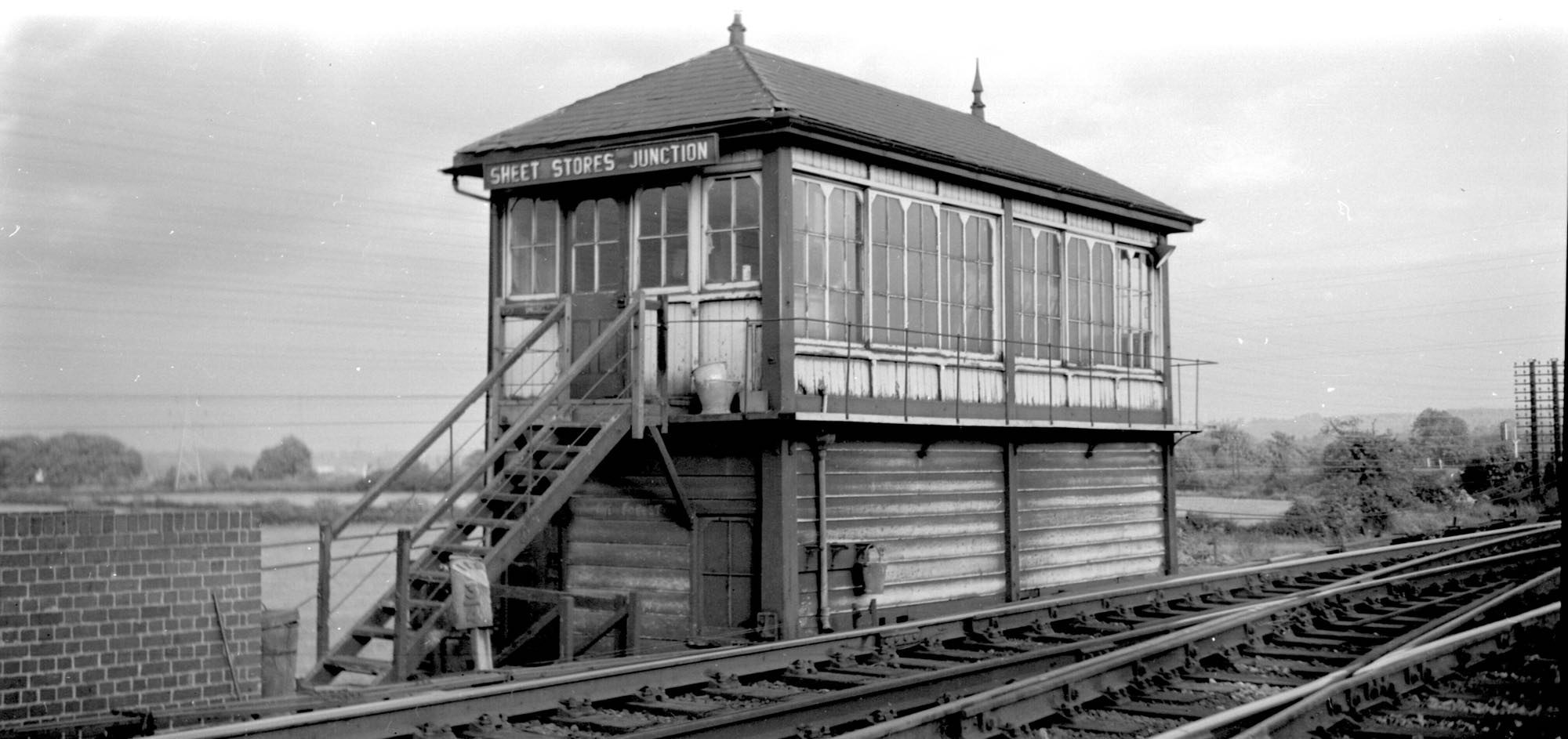
Farewell to Derby Power Box
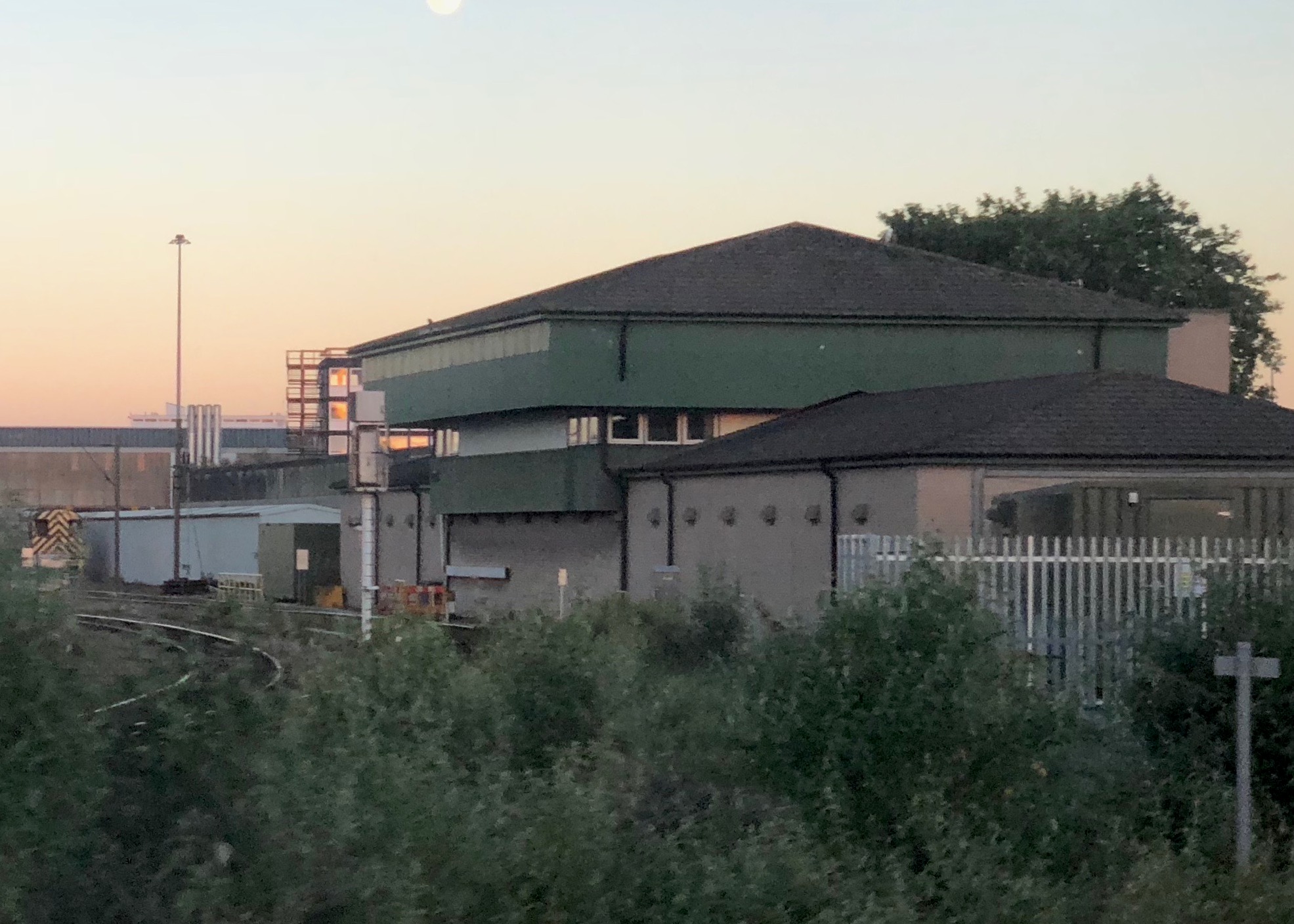
Around ten months shy of its half-century, Derby Powerbox signalled its last train, 222102 working 1F68, before being formally signed-out and abolished at 22:33 on 1st September 2018. Though of course the embodiment of progress which saw most of the mechanical signalling swept away from the Derby area in 1969, it undoubtedly has its own hugely important part in the area's signalling history.
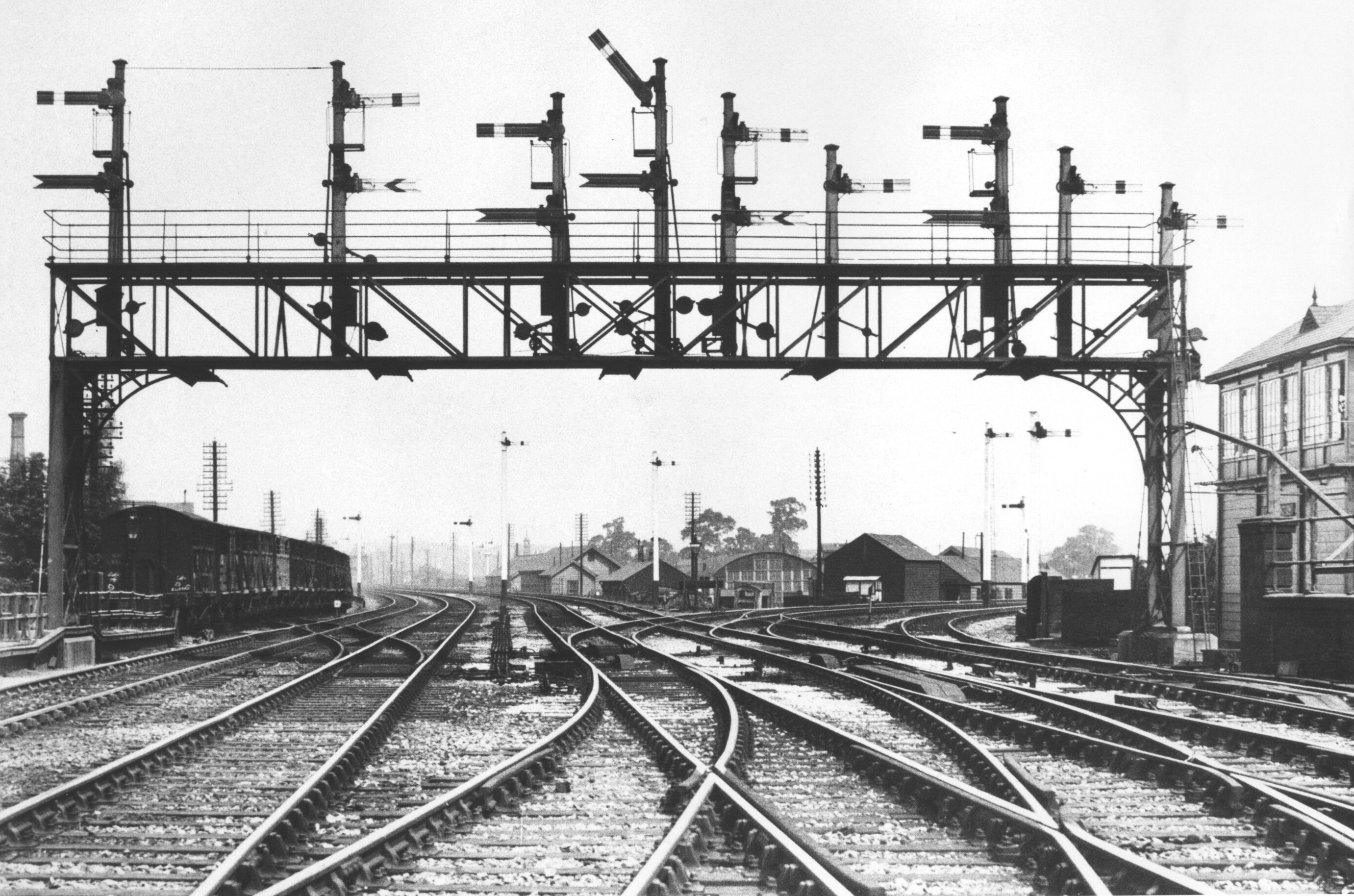
East Notts Resignalling
The demise of mechanical signalling (almost!) on the Nottingham Lincoln line
Although my focus is primarily on the Derby area, you will find that I also devote some of this site to the signalling of the Nottingham to Lincoln line. The autumn of 2016 saw the extension of the East Midland Control Centre's reach along the line, with the eradication of four signal boxes.
The method of working of the line is now Track Circuit Block (TCB) using axle counters and the previously manually worked crossings (including Rolleston Station) are now worked using ‘Obstacle Detection’ (MCB-OD). There is an excellent article on the Rail Engineer website which provides the history of the scheme and an overview of the method of working. [Thanks to Andrew Surry for letting me know about it].
With Newark flat crossing still controlled by Doncaster Power Signal Box and the Lincoln end of the line under the control of the Lincoln Signalling Centre, that leaves just Swinderby as the single remaining mechanical signal box on the line.
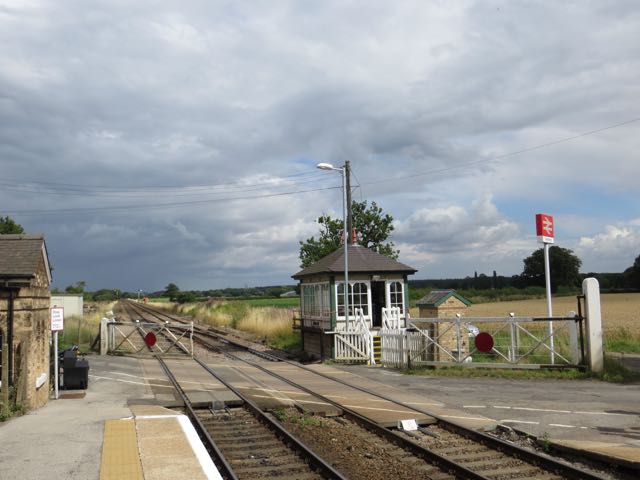
Resources relating to signalling in other areas
Nottingham to Lincoln — “Midland Microcosm”
As well as the Derby area, my other strong signalling interest is the Nottingham – Lincoln branch of the Midland Railway (I deliberately skipped over Trent and Nottingham as the signalling of those areas seemed too complicated to me!).
Here is a version of MIDLAND MICROCOSM (significantly refreshed in September 2022) which describes the signalling between Nottingham and Lincoln. This also a slightly more specific article dealing with Cottage Lane Crossing near Collingham, Notts. Otherwise, if you share an interest in this area, please get in touch with me.
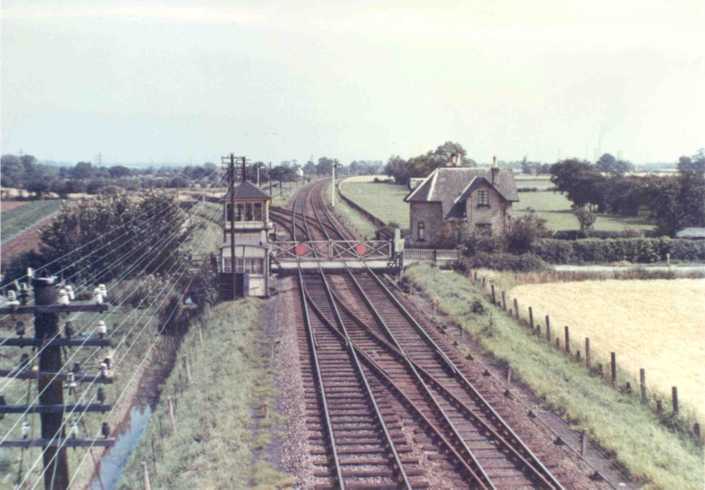
Fiskerton Junction - photographed from its Down Home signal (21) by John Rose in 1966
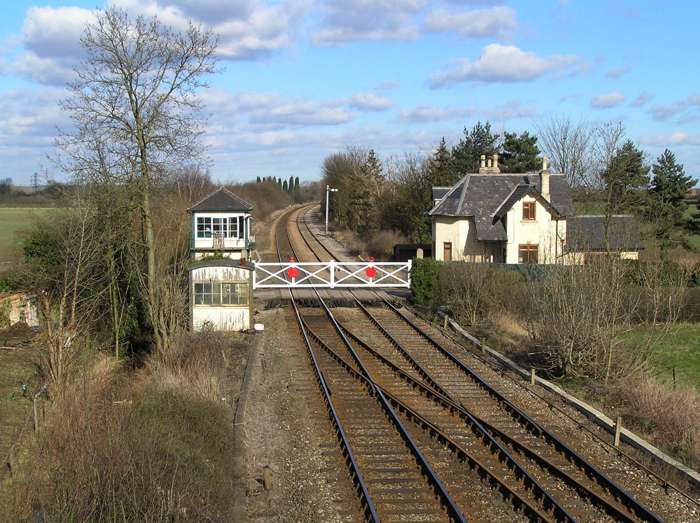
... and photographed by an intrepid NR employee in 2005.
Midland Railway signalling
Any student of Midland Railway signalling practice will be be incredibly well served by joining The Midland Railway Society. In the spirit of full disclosure, I joined the MRS to further my research and ended up as Secretary! This then led me to become Coordinator of the Midland Railway Study Centre at Derby, with its unequalled collection of Midland Railway information and documentation.
For anyone with an interest in history, not just railway matters, in the East Midlands, there are a large number of fabulous old photographs to browse and buy on the Picture The Past web site - highly recommended.
The Midland Railway - Butterley have, for many years, used the former Pye Bridge branch (including the sites of Butterley Jn., Butterley Station, Swanwick Jn., and Ironville Jn.) to recreate the unique aspects of Midland Railway signalling. Aspects of Midland Railway signalling locally to Derby are also demonstrated on Peak Rail at Matlock (see this site for full details about Peak Rail’s signalling) and the Ecclesbourne Valley Railway at Wirksworth. A little further afield, there is plenty of Midland signalling interest at The Battlefield Line at Shackerstone in Leicestershire.
The best place to see and experience Midland Railway signalling close-up is at the St. Albans South signal box. This 44 lever Type 2A box dating from 1892 is lovingly cared for by the St. Albans Signal Box Preservation Trust and with the inclusion of a computer driven simulator, has been restored to full working order - including the Rotary Interlocking Block. Regular open days are held when the public can visit and experience life inside a busy main line signal box. See www.sigbox.co.uk for more information.
Railway Signalling in general
For anyone with an interest in railway signalling, whether it be specific to a single area, UK signalling practice in general, or even around the world, membership of The Signalling Record Society is pretty-much essential. This very active group of enthusiasts and professionals are a really knowledgable and friendly bunch.
For more information and lively discussion about general signalling matters, I strongly urge you to go to The Signal Box. Its founder and webmaster, John Hinson, is a (now retired) signalman who signed more signal boxes than anyone else I know (except Pinkie of course!). Over many years John has worked exceptionally hard to make his web site the go to
location for anything to do with signalling.
If you'd like to discuss matters specifically concerning subjects on this site, please contact me.
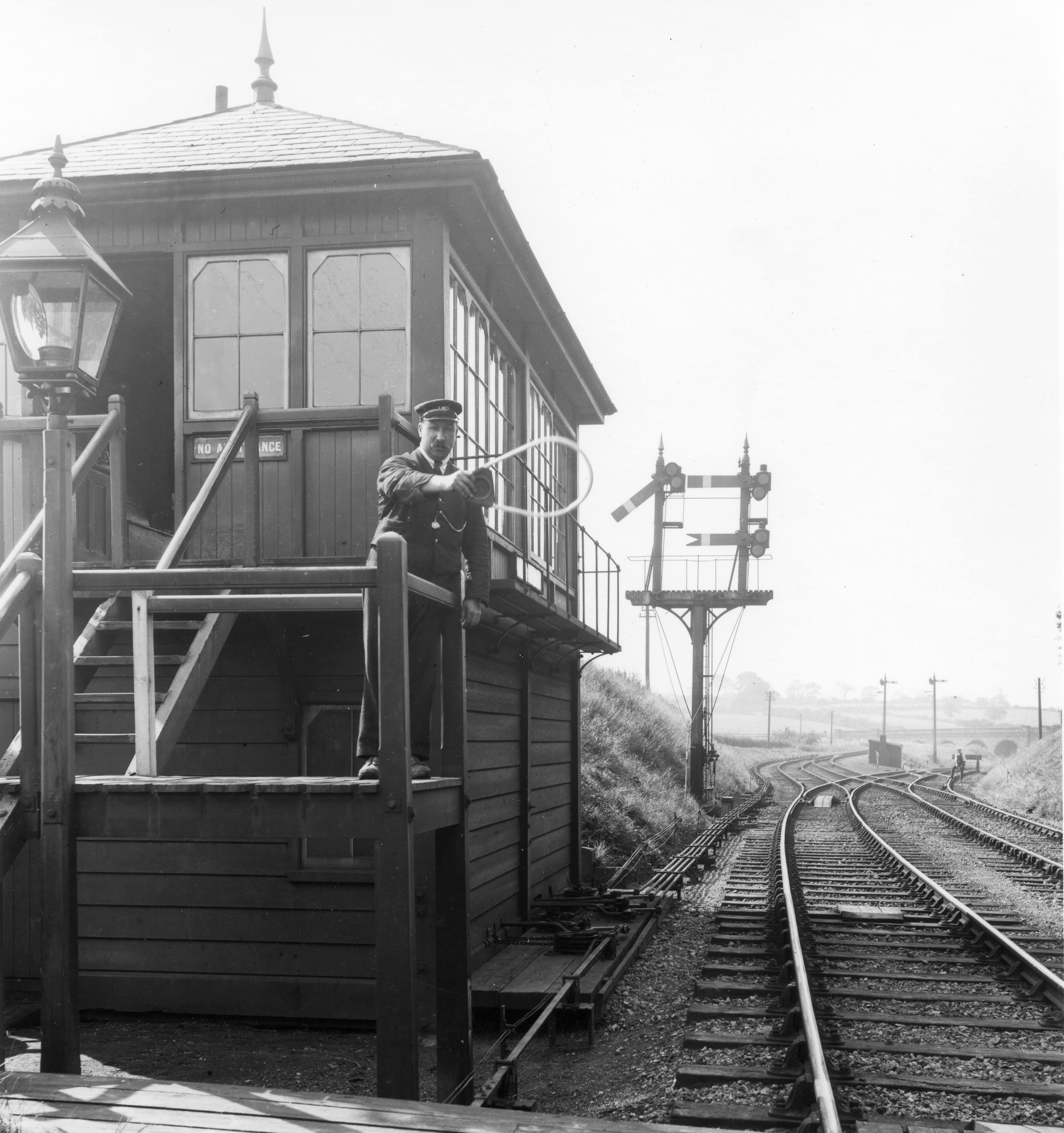
Updates to the site
November 2023
Another new opening photograph and a small update to the Focus on Wichnor Junction article.
September 2022
Another refresh to the opening photograph — this time two of them from the Alan Hunt collection in the Midland Railway Study Centre.
March 2022
As well as refreshing the opening photograph I have linked to the updated version of Midland Microcosm. Some slight tidying up too.
November 2020
The primary task here was to repair the databases which had become unusable following an "upgrade" by my Internet Service Provider 😣 . The opportunity has also been taken to refresh the opening photograph.
March 2020
The usual housekeeping and dusting, plus the addition of the Focus on Wichnor Junction article.
December 2018
A small amount of tidying.
September 2018
A few lines to mark the abolition of Derby Powerbox.
April 2017
A general refresh of the images on the front page and an update to links to local heritage railways with Midland Railway signalling interest (with thanks to Dominic Beglin for the nudge in respect of the signalling on Peak Rail).
November 2016
The data behind the search pages (database of signal boxes, database of staff, listed by signal box and searchable by surname) have been updated. A few words about the demise of the mechanical boxes between Lowdham and Newark have been added.
October 2016
With the kind assistance of Dave Chambers, the Ripley branch article has been updated slightly.
January 2016
The “Sources Consulted at the National Archives” page has been refreshed and updated to include visits since March 2000 (when it was last updated!). The links to the MT6 sketches on that page have been repaired as well.
September 2015
Should you feel the need, the pages should now look a little better than they did before when printed (or saved as PDFs)
I have refreshed the page relating to Little Eaton on the Ripley branch (itself a new article), adding some "new" photographs and extra information.
August 2015
Regular visitors to the site will have noticed I have been gradually sprucing things up a little after a long period of what can only be described as stagnation. I have tried to bring all the content up-to-date and improve the consistency of presentation (and hopefully make all the pages “play nice” with modern web browsers). This has culminated with a complete refresh of this front page. All the material which was once here has been moved to their own pages, linked appropriately in the lists below. There are several bits & bobs of new material sprinkled around the site in addition to the highlights which follow...
I have added a page detailing the curious chronology of Coton Park Sidings (between Swadlincote Junction and Gresley on the Burton – Leicester line). This place is an eternal mystery; having four very distinct periods of existence. More-to-the-point, it seems that the box was never photographed, despite surviving as (comparatively) late as 1964. The page concludes with a heartfelt appeal for further information!
Here are the fruits of my North Staffordshire Sojourn in August.
The Small Print: The majority of photographs used on this site are not mine. Wherever possible the original photographer is credited and the image is used with permission. Where I have been unable to seek such permission, I sincerely hope that the photographer will acknowledge that the images are used in an educational spirit and absolutely no financial gain is involved. To that end, visitors may not reproduce any image from this site - in the event you wish to do so, please contact me and I will try and put you in touch with the person whose consent you need. As far as the text on the site is concerned, that is almost all mine. Unless otherwise indicated, Visitors are free to reuse any text or information they find on this site for any purpose. The only restriction is that I ask for an acknowledgement to www.derby-signalling.org.uk where applicable, and I absolutely insist on the courtesy of being informed of any such use if commercial gain is involved. Thank you.
Dave Harris, Willington, Derby, UK.
Email: dave@derby-signalling.org.uk
Site last update Sunday, 21 April 2024
This site does not use cookies.
FavIcon courtesy favicon.co.uk.